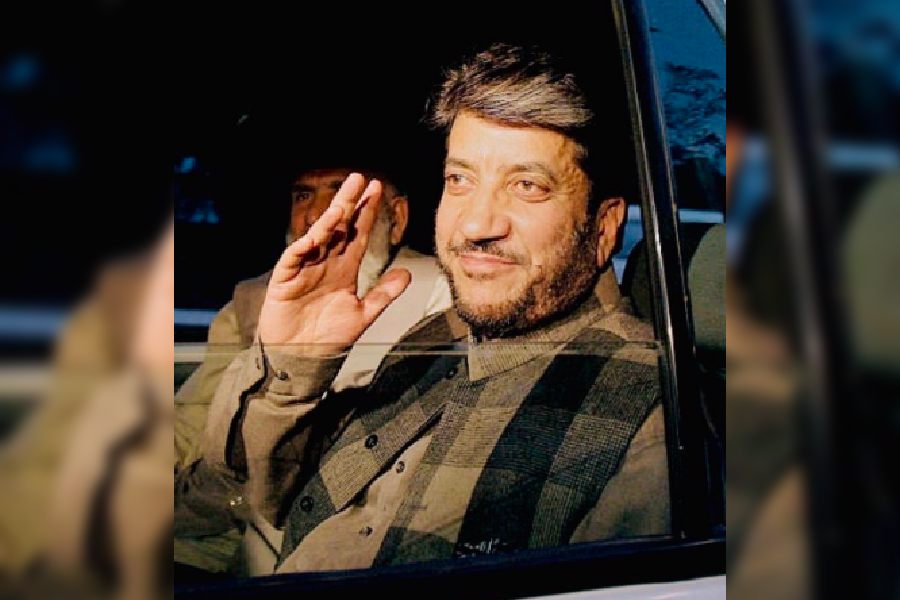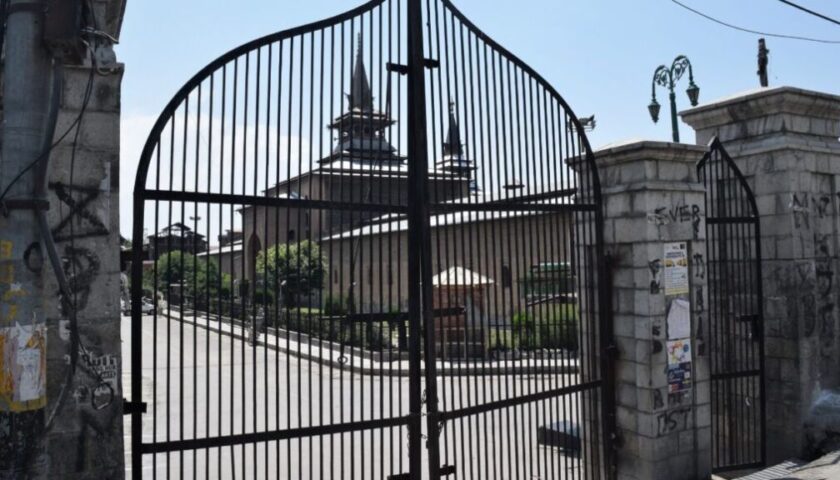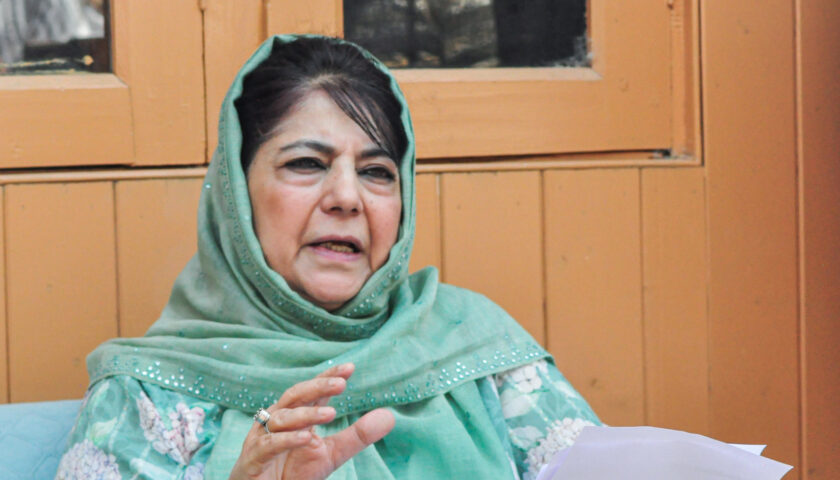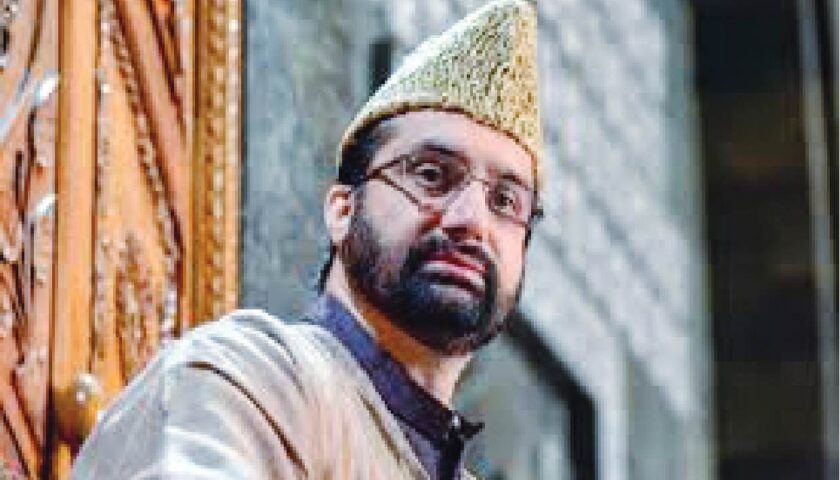A Separatist Leader in the Crosshairs
By: Javid Amin | 25 September 2025
In a significant legal development, the Supreme Court of India has asked the National Investigation Agency (NIA) to furnish detailed information regarding the custody status of Shabir Ahmed Shah, a prominent Kashmiri separatist leader, in connection with 24 criminal cases, including charges of terror funding, conspiracy, and sedition.
The directive comes as Shah challenges the Delhi High Court’s June 12, 2025 order, which denied him bail in a high-profile terror funding case. The apex court’s move signals a deeper judicial inquiry into Shah’s alleged role in facilitating separatist movements, inciting public unrest, and channeling funds through illegal means.
Who Is Shabir Ahmed Shah?
Shabir Shah is not just another name in Kashmir’s political landscape—he is a symbol of resistance, a veteran of separatist politics, and the founder of the Jammu and Kashmir Democratic Freedom Party (JKDFP), which has been declared an unlawful organization by Indian authorities.
Political Background:
- Active in separatist politics since the 1980s
- Known for advocating self-determination for Kashmir
- Has spent over 30 years in detention, intermittently, under various charges
- Regarded by supporters as the “Nelson Mandela of Kashmir”
- Accused by the state of inciting violence, funding unrest, and glorifying militants
Shah’s political journey is marked by frequent arrests, house detentions, and legal battles, making him one of the most controversial figures in the Valley.
The Supreme Court’s Directive
On September 24, 2025, a bench comprising Justices Vikram Nath, Sandeep Mehta, and N.V. Anjaria directed the NIA to submit a comprehensive affidavit detailing Shah’s custody status across 24 criminal cases.
Key Observations by the Bench:
- “Please provide us the status of custody in other cases also. He is facing trial in probably 24 cases.”
- The NIA was granted four weeks to file its response
- The matter is scheduled for next hearing on October 31, 2025
The court’s directive stems from Shah’s bail plea, which challenges the Delhi High Court’s refusal to grant him interim relief in the terror funding case.
The Terror Funding Case—A Closer Look
The case dates back to 2017, when the NIA registered an FIR against 12 individuals, including Shah, for allegedly raising funds to disrupt public order, pelting stones, and waging war against the Indian state.
Allegations Against Shah:
- Receiving money through hawala channels
- Funding stone pelters and protest organizers
- Delivering inflammatory speeches
- Glorifying slain militants as martyrs
- Using LoC trade to funnel subversive funds
The prosecution claims Shah played a “substantial role” in facilitating a militant ecosystem under the guise of political dissent.
Delhi High Court’s Bail Rejection
On June 12, 2025, the Delhi High Court denied Shah’s bail, citing concerns over witness tampering, repeat offenses, and national security risks.
Court’s Reasoning:
- Shah’s history of similar unlawful activities
- Potential to influence witnesses
- Seriousness of charges under UAPA and IPC
- Rejection of alternate plea for house arrest
The court emphasized that freedom of speech cannot be used to incite violence or glorify terrorism, drawing a line between political expression and criminal conspiracy.
The 24 Criminal Cases—A Pattern of Allegations
While the full list of cases is yet to be disclosed, the High Court had examined a detailed table outlining Shah’s involvement in multiple criminal cases, many of which relate to:
- Sedition and conspiracy
- Unlawful assembly and incitement
- Terror funding and money laundering
- Public disorder and property damage
This pattern has led investigators to argue that Shah’s activities are part of a larger separatist strategy, not isolated incidents.
Legal and Ethical Questions
The case raises important questions about custodial transparency, judicial fairness, and the limits of dissent in a democracy.
Key Legal Debates:
- Can political speech be criminalized if it indirectly incites unrest?
- Should bail be denied based on past allegations, even if not yet proven?
- Is prolonged pre-trial detention justified under national security concerns?
Legal experts argue that while national security is paramount, due process and human rights must not be compromised.
Political Reactions and Public Sentiment
The case has drawn mixed reactions across the political spectrum.
Supporters Say:
- Shah is being targeted for his ideology, not proven crimes
- The government is using legal tools to silence dissent
- The crackdown reflects a broader erosion of democratic space in Kashmir
Critics Argue:
- Shah’s actions have direct links to violence and unrest
- His glorification of militants is dangerous and inflammatory
- Bail would send a wrong signal amid rising separatist tensions
The public remains divided, with many in Kashmir viewing Shah as a symbol of resistance, while others see him as a destabilizing force.
NIA’s Role and Responsibilities
The NIA, India’s premier counter-terror agency, is tasked with investigating and prosecuting terror-related offenses. In Shah’s case, it must now:
- Submit a detailed custody report for all 24 cases
- Clarify the timeline of arrests, detentions, and trials
- Justify its opposition to bail based on evidence and risk assessment
The agency’s affidavit will be crucial in shaping the Supreme Court’s next decision.
The Bigger Picture—Kashmir’s Legal Landscape
Shah’s case is emblematic of the legal complexities surrounding separatist politics in Kashmir. It reflects:
- The tension between national security and civil liberties
- The use of legal frameworks like UAPA and FCRA to curb dissent
- The challenge of prosecuting ideological leaders without inflaming public sentiment
As Kashmir navigates its post-Article 370 reality, cases like Shah’s will define the contours of permissible dissent.
What Lies Ahead
With the next hearing scheduled for October 31, 2025, all eyes are on:
- The NIA’s affidavit and its factual depth
- The Supreme Court’s interpretation of custodial fairness
- The political fallout in Kashmir and beyond
Whether Shah is granted bail or remains in custody, the case will shape legal precedent, public discourse, and regional stability.




